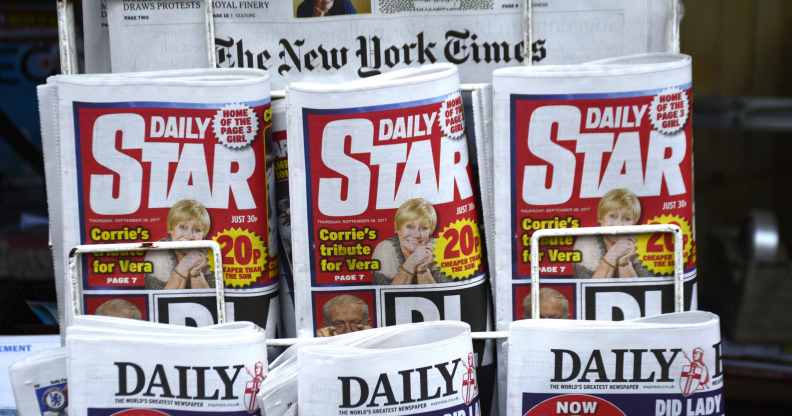One in three LGBT+ journalists have been ‘bullied, harassed or discriminated against’ working in the British media

British LGBT+ journalists have reported their experiences of the industry. (Robert Alexander/Getty)
A third of LGBT+ journalists working in the British media have experienced bullying, harassment, ill-treatment or discrimination at work as a result of their sexuality or gender identity, according to the National Union of Journalists (NUJ).
Colleagues were the worst perpetrators, followed by senior managers. One in 10 LGBT+ journalists said they’d been bullied or discriminated against by an interviewee.
Moreover, almost two-thirds of the LGBT+ NUJ members who responded said they did not feel the media represented their communities fairly and accurately.
The findings come after 284 LGBT+ members of the NUJ responded to a confidential survey carried out by the union in February 2021.
Natasha Hirst, chair of the NUJ’s Equality Committee, said of the results: “The NUJ has a long history of fighting for our members’ rights and calling out poor behaviour and prejudice.
“We are committed to supporting inclusion in our union and workplaces and promoting diversity in journalism. There are many opportunities for members to engage with our equalities work and it’s been heartening to see so many responding to this survey with a desire to get involved.”
A third of LGBT+ journalists said their workplace was not a safe and inclusive space where they could be open about their sexuality, while half said the same about gender identity. Two-thirds of freelance members said they felt unsafe to be open about their sexuality or gender identity with clients.
As well as working in an institutionally transphobic media environment, LGBT+ journalists reported overhearing colleagues making homophobic comments and one person said they faced hostility for using the bathroom. Certain sections of the media, such as sports journalism, were deemed worse for LGBT+ staff.
Many LGBT+ members said they received “torrents of abuse” on social media.
However, the results were not all negative, with one person commenting: “My workplace is a pretty supportive environment. I’m not in a relationship, but there are LGBT members of staff who talk about their partners at work, gender non-conforming dress is accepted and there’s a support network for LGBT workers.”
Another added: “The only time I feel different in any way is when patronising ‘inclusion’ initiatives are introduced.”
Adam Christie, NUJ delegate to the TUC LGBT+ conference, said: “The survey responses suggest a lot of progress has been made as far as openness is concerned but none of us can afford to be complacent.
“It is disappointing that so many feel LGBT+ individuals are not represented fairly and accurately in the media.”

